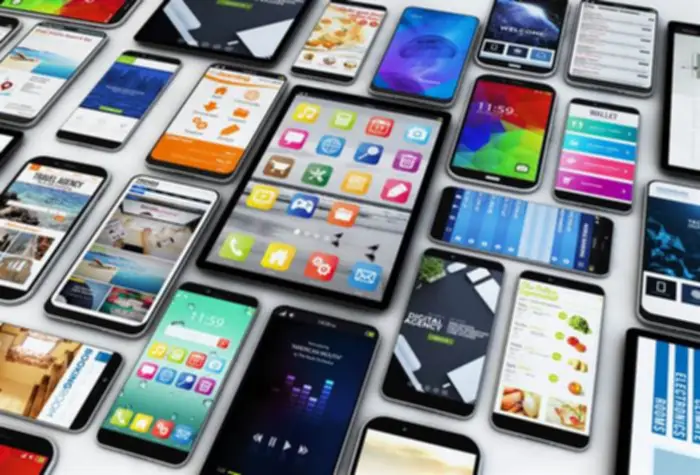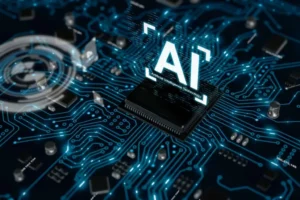Android vs iOS app development: The major differences explained

Not every person understands why Android and iOS are so different.
Is it just the brand? Maybe, it’s all marketing that brings on the changes?
To be honest, it is necessary that all the hundreds of differences are covered. These two operating systems are like two separate species, each with its own unique features. We shall cover the most important aspects of the iOS vs Android development.

Statistics first
Before we proceed to the development differences, it is necessary that everyone understands some major differences in the statistics.
The very first thing that must be mentioned is that Android holds approximately 68% of the overall mobile market. iOS lags behind with only 30%, having a share that is two times smaller.
Nevertheless, there is a large difference in the profitability and monetization options of both operating systems. It is believed that the App Store generates 80% more revenue than the Play Store, so you might want to consider this when developing an application on your own.
In addition to that, in countries like the USA and Japan, iOS devices are more popular than Android. Speaking of the UK, Germany, China, Brazil, India, and others, Android devices totally dominate the market.

We are confident that we have what it takes to help you get your platform from the idea throughout design and development phases, all the way to successful deployment in a production environment!
Development differences explained
Now that you know these statistics, we may proceed with the differences in iOS vs Android development.
Programming language
Probably the most impactful difference is the programming languages that are used by both operating systems.
Speaking of Android, here we can use Java or Kotlin. The same cannot be said for iOS due to Swift, which is the main language here.
Swift is thought to be better because it requires less coding and makes it easy to make cool interfaces. Nevertheless, there are quite a lot of limitations like platforms and others.
Java, on the other hand, has a broader variety of options. You can build a server, develop a web app, and many other stuff, making it more universal.
Design solutions
Due to the limits provided by iOS devices, developing software is much easier. You have a fixed number of device models and know precisely their screen sizes. iOS, on the other hand, has different navigation buttons, menus, notifications, and back buttons. This means that designers have to know their platforms inside-out.
Android requires more work because of the enormous number of devices. Screen sizes vary significantly, and there are no strict standards. Navigation is also different, so all these details must be taken into consideration.
Monetization options
There are many different ways to make money from your software.
For example, iOS applications focus on a model where access to the software is granted after payment, while Android apps usually have advertisements and premium accounts.
Although both options are good enough, there are differences. Paid access to software is more profitable but it lowers your audience. Advertisements within the app let you provide free access but lower the profits.
The best way is to provide paid applications only if they are unique and a must-have. When there are many alternatives, ads are the best choice.
Target audience
When creating an application, you must be aware of everything regarding your audience.
Some interesting facts might give you a better idea about your future users. For example, owners of iOS devices tend to have a higher yearly income and are usually older. However, you must perform detailed analysis on your own to get a better idea of your customers.
Development speed and costs
Providing any estimates for Android and iOS development is very complicated.
Nevertheless, we can easily point out several factors that must be considered:
- It takes up to 40% more time to make an Android app.
- The longer the app is developed, the more it costs.
- Publishing an iOS app is more time-consuming because of the strict acceptance processes.
Apart from these points, a huge role is played by the features that are implemented in the software, its design, usability, goals, and a ton of other details. Do not forget any of them when calculating the time and expenses.
What should you choose?
In this eternal battle of Android vs iOS app development, it is recommended that you create cross-platform software that will be available on all devices. While the creation of native apps consumes more resources like time and money, it is still a better option in terms of productivity, reliability, and usability.
If you’ve got a shoestring budget and cannot afford the development of a native application, then a web app comes to the rescue. They adapt to whichever device they are used from and require less effort when created. However, they lack many features and, most importantly, cannot compete with the productivity of native software.
Where to get a development team for Android and iOS?
So, did you come to the decision to create an application for any of these platforms? Maybe, you’ve chosen both?
It does not matter as long as you have a qualified team of specialists who cover all the processes. Finding such industry experts is a very difficult task, so here are some tips.
- Search on freelance platforms and social mediaThere are many skilled developers who work in a task-based manner. They prefer developing certain apps without being responsible for other processes within the company. Apart from that, it is the best option when you are very limited in terms of finances.We highly recommend that you pay attention to such freelance platforms like Upwork and Fiverr. Here you will most likely find an iOS or Android developer for any task. The same goes for social media, like LinkedIn and Facebook.
- Outsourcing agenciesThese are more expensive and are a bit harder to find. However, an agency takes care of all the documentation, and you get a specialist who is a bit more dedicated to the task. We cannot recommend any agencies because there are too many, and they have various specifications.
- The GlobalCloudTeamThe most reasonable option is working with the GlobalCloudTeam. We build a qualified team just for your project by choosing our best developers. Each of them has a lot of experience working with such projects. Our team of over 450 experts has already completed more than 100 projects in different areas – the portfolio is available on our website. Contact our representative now to get an estimate!
The bottom line
Comparing iOS vs Android development is like watching water and fire.
These are two totally different operating systems with various requirements and possibilities. Although each has its own pros and cons, comparing them is still not a very good idea.
When you get an idea of the application you would like to develop, it is better to focus on covering the broader audience. Native software has better productivity and more features but it requires a bigger investment. Cross-platform applications are created a bit faster and cheaper, but they lack productivity.
If you want to create a top-notch app for any platform, contact the GlobalCloudTeam ASAP.
Do not let your competitors get ahead of your business!
Top Articles
Container vs VM (Virtual Machines): How Do They Differ?
I am here to help you!
Explore the possibility to hire a dedicated R&D team that helps your company to scale product development.






